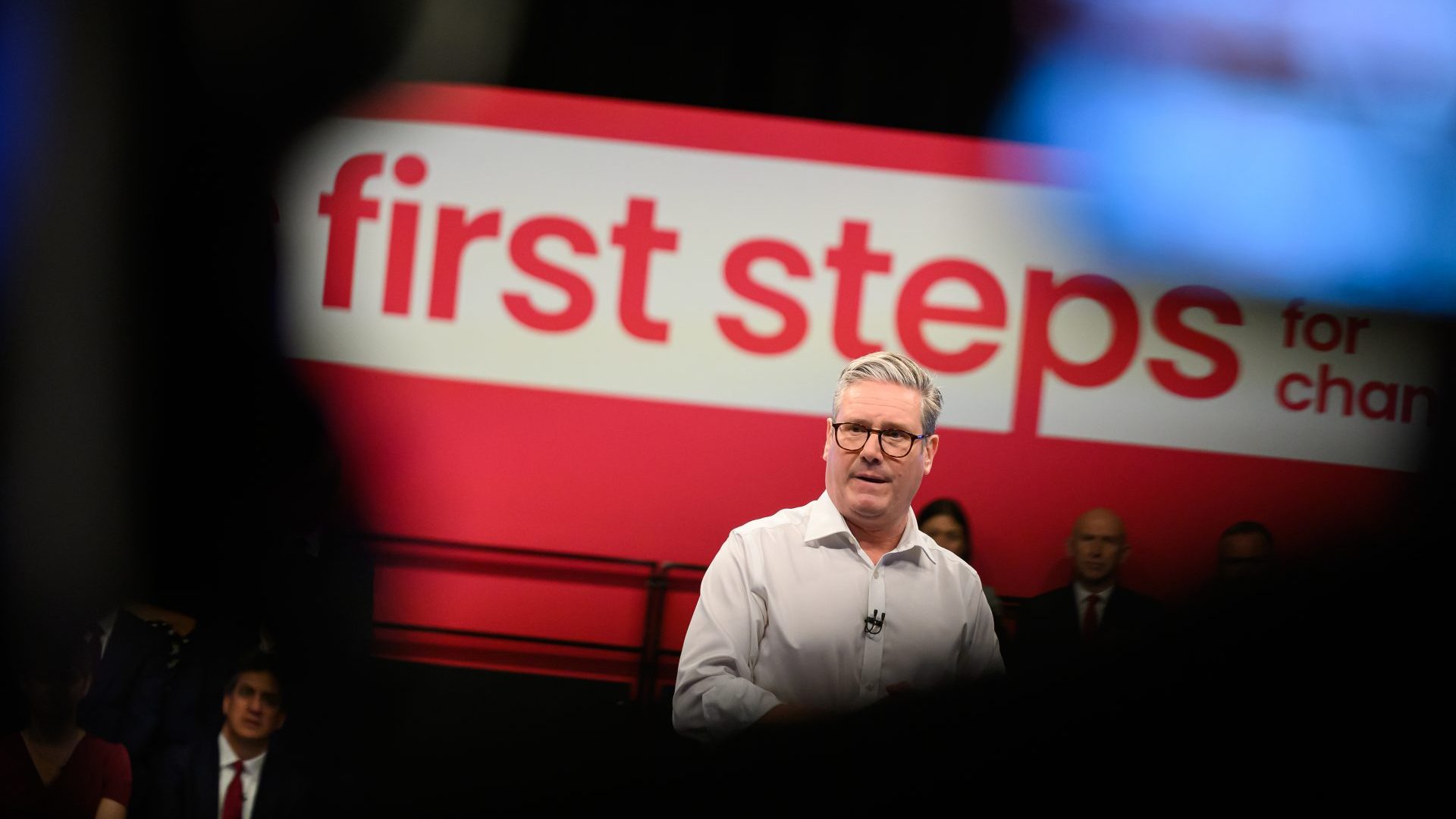Let no-one tell you that inflation isn’t real: Keir Starmer’s 2024 pledge card contains 20% more pledge than the famous 1997 New Labour version – and as if to stress how much the world has changed in the 27 years since the device was first used, where Blair’s card was made of, well, cardboard, the Starmer variety can be saved to a smartphone wallet.
Notably, Starmer is framing his six pledges as his “first steps” rather than any kind of exhaustive programme for his first term, should he (as expected) win at the next election – which may serve to allay the concerns of those who note that neither housing nor workers’ rights have made the list.
What is there is a mix of the generic and the specific. Promising to deliver “economic stability” is very much the former, as is a promise to crack down on antisocial behaviour – something almost every manifesto of both major parties has promised for the last few decades.
At the more specific end of the pledge list, Starmer’s promise to launch a new border security command – an attempt to join up border agencies, relevant police units, and intelligence services – has the benefit of being much more attainable than Sunak’s doomed “stop the boats” promise.
Cutting NHS waiting times is possible if difficult work, which may go slower than people hope. Rounding out the pledges, Labour’s promise to create a publicly owned energy company makes the cut, as does a promise to hire 6,500 more teachers.
There are policies Labour has done significant work on that are visibly missing from this list – Angela Rayner has repeatedly promised to introduce Labour’s package on workers’ rights (albeit somewhat watered back from its 2021 version) in the first 100 days of a new government.
Similarly, a Labour government is expected to eliminate hereditary peers from the Lords very early in a first term – while perhaps its most ambitious policies to date are on planning reform, which the party hopes would address the housing shortage and productivity problems aside.
Some may worry that the absence of these policies from the pledge card means the party is going back on those ideas – but it is possible to over-read into what goes on such documents. The point of a very short document like a pledge card is to reach people who don’t much think about politics with some simple and relatively concrete bullet points.
Given that, you want the policies on a card to be self-explanatory without any additional context – and you want them to be as uncontroversial as possible. Given a pledge card is essentially an advertisement, you might as well focus on what tests best – as these cards seem engineered towards.
It is notable and not a coincidence that the six issues addressed on the pledge card map almost exactly onto the top priorities of the public as revealed through various polls. Labour is trying to make sure it has something to say about the public’s top issues, and that what it says won’t set off any alarms.
It’s debatable whether these pledge cards make any difference – Michael Gove’s former advisor Sam Freedman argued earlier on Twitter that the launch of the 1997 pledge card didn’t move the polls in Labour’s favour, but others argued they help focus the message on the doorstep and in advertising.
This card will probably not help Labour a great deal, but it is unlikely to do all that much harm, either. What was perhaps most striking was the contrast between Labour’s launch of the pledge card – with lots of energy, endorsement from external business figures, multiple shadow ministers speaking – and the latest Conservative relaunch, which was a low-energy speech from Rishi Sunak with little in the way of a top line.
Politics is made up of a lot of things, and among them is what we now tend to refer to as vibes – and the vibes could not be clearer. Despite being decades younger than his rival, Rishi Sunak looks like a man limping towards the end of his political career – and Starmer is looking more ready for government than ever.











